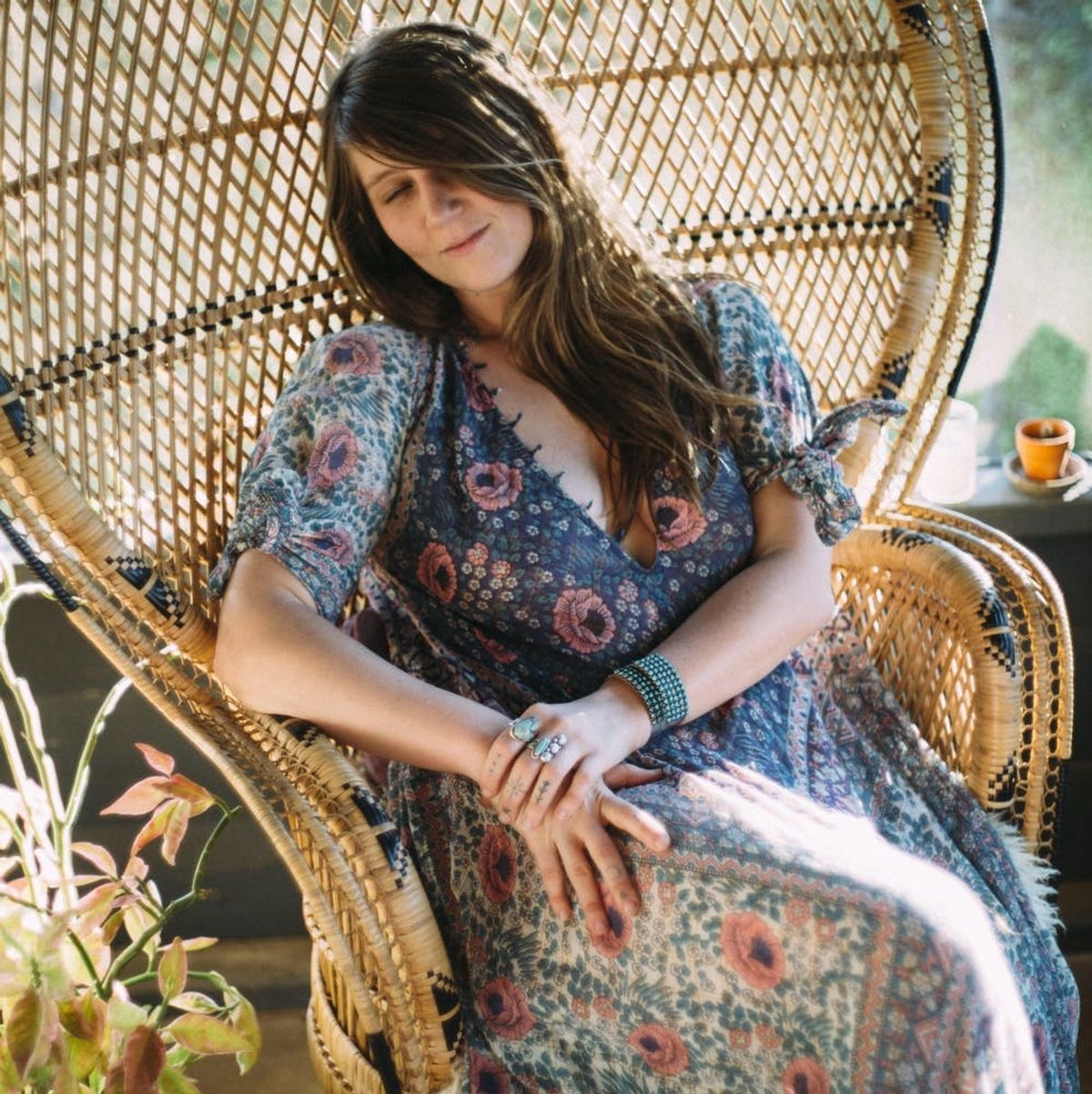Sophia Rose says plants are medicine that our DNA can help us tap into.
This Woke Herbalist Connects Women to Their Ancestry Through Plants


Ladies First highlights women and girls who are making the world better for the rest of us.
Herbalist Sophia Rose has a theory for why so many women seem to be drawn to herbalism, astrology, and alternative forms of healing.
“It comes from a deep spiritual poverty rooted in colonial culture and loss of connection to land, and home, and ancestors,” Rose says. “I think we’re doing it to survive, you know? We live in such a materialistic culture that most people don’t realize how impoverished their inner world is and how starving their spirits are.”

A trained medical herbalist, Rose is the creative brain behind apothecary and herbalism company La Abeja. (La Abeja means “the honeybee” in Spanish, a name Rose chose because, as she puts it, “Who loves the flowers more than the bees? And if I can serve the bees, then ultimately, I’m serving the plants and the flowers that I love.”) The site, along with Rose’s herbalism newsletter and event series, Garden Party, seeks to help women relearn to embrace the natural world — a process of reconnection that benefits a person’s mental and physical health, as well as the environment.
“Basically, what I realized is that we work with plant medicine to become that medicine,” she says. “So we embody the value of that plant and live that plant. And so, I do that through my writing. I started Garden Party so that I could offer more educational resources online.”

The Garden Party website is a moderated archive for budding herbalists with lessons about indigenous plant life around the world and the varied use for each region’s plants, sort of a how-to and what’s-what for anyone interested in herbal medicine. Rose also hosts a large in-person Garden Party where members meet to go on plant walks, create medicine together, and even get commemorative tattoos.
“What I want to offer is something experiential, because what you learn through your direct relationship with plants is going to be so much more valuable than anything that I or anyone else can spoonfeed you,” she says.
Experiences are important for Rose, who works to ensure that her practice not only respects the nature in which she lives, but doesn’t appropriate tradition from Indigenous communities. She recommends that budding herbalists reach back into their individual ancestries to find ways in which previous generations used medicine to heal — and to support others working to protect our environment and traditional medicines.
While she preps for her next Garden Party in Austin later this year, Rose is also working on opening a retreat near Truth or Consequences, New Mexico where she hopes to host women — particularly those working in social justice and environmentalism — to recharge and gain energy for the work that they do. And at the end of the day, she hopes she helps women reconnect with their pasts in a way that’s restorative for their souls.

“There’s a lot of ancestral trauma that has kept us from doing this [work],” she says of therapeutic herbalism, explaining that her long-term goal is to help empower women to identify the underlying causes of their discontent, as opposed to masking their problems with potions.
But it’s not too late for any of us to work on healing ourselves or the planet, Rose tells us. All we have to do is listen.
“The wisdom and experience was mostly lost, but it lives inside us. It’s in our DNA and we’re slowly tapping back into that,” she says. “You can’t even know that something is possible until you see people around you doing it, so the more people giving themselves permission to get connected to themselves and to the land, the more people will want that.”



















